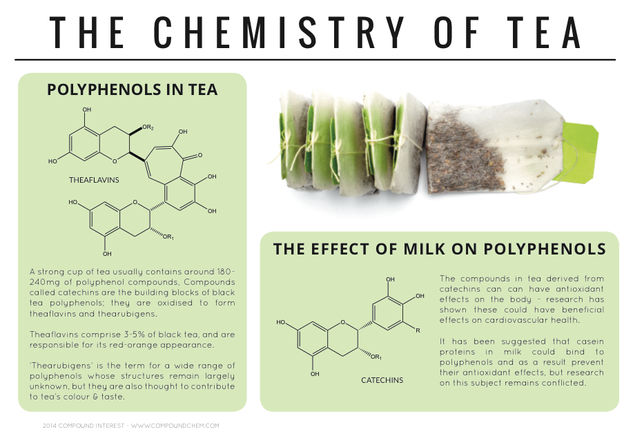© Compound InterestPolyphenols & Antioxidants – The Chemistry of Tea
After looking at the chemistry of coffee in the previous post, it seemed only fair to also consider the chemistry of tea, just so all the tea drinkers out there don’t feel left out. Much like coffee, tea contains a hugely wide variety of chemical compounds, but some of the most important in terms of its taste and colouration are the polyphenols.
Black tea is produced by the full oxidation of tea leaves, which are then dried. Compounds from the flavonoids family called catechins make up 27% of the composition of unoxidised green tea; due to the oxidation process, this is reduced in black tea to around 4%. The oxidation products of catechins in black tea are polyphenols, which influence both its colour and flavour.







